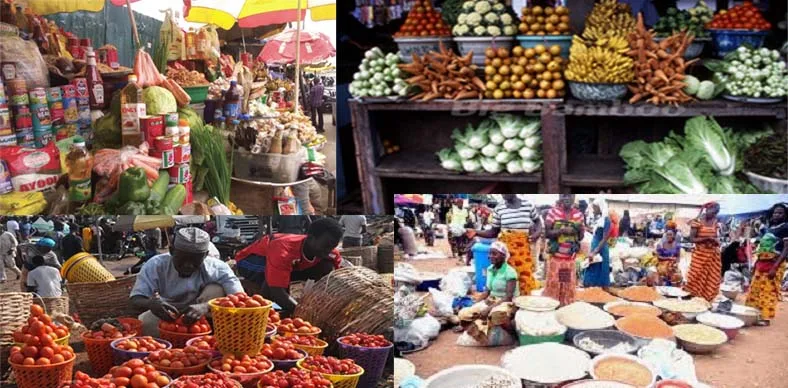Families Struggle as Food Prices Skyrocket
Nearly two-thirds of Nigerian households struggle to access sufficient food, with many skipping meals or going hungry. This alarming reality was detailed in a report published by the National Bureau of Statistics (NBS), which revealed a significant rise in the number of families unable to afford food due to soaring costs.
“Food has become a luxury for many families,” said Obinna Eze, a Lagos-based father of four. “I never imagined we’d get to a point where feeding my children once a day would be a challenge.”
Join our WhatsApp ChannelThe report indicated that 62.4% of households in 2023 lacked enough food due to financial constraints—up from 37% in 2019. Additionally, 12.3% of households reported at least one member going without food for an entire day.
What Is Driving Rising Food Prices?
Food inflation in Nigeria surged to 41% in June 2023, the highest in nearly three decades, with key reforms by President Bola Tinubu cited as a major factor. These measures, including the removal of fuel subsidies and the floating of the naira, caused the currency to lose 72% of its value and led to increased transportation and production costs.
READ ALSO: Nigeria’s Inflation Rises To 32.70% in September As Food Prices Continue To Soar
“While the reforms are necessary for long-term stability, they are pushing the poor to their limits,” Economist Funmi Adewale told reporters.
The annual inflation rate reached 33.9% in October, further squeezing household budgets. The average cost of maintaining a healthy diet rose by 30% between May and September 2023, according to the NBS.
The Human Impact of Rising Food Prices
The nutritional effects are becoming visible across the country. Malnutrition rates are on the rise, with 25% of Nigerian children now classified as underweight—up from 19% just four years ago.
“Children are paying the price of these economic policies,” said Aminu Hassan, a health worker. “We are seeing more cases of stunted growth and malnutrition in clinics.”
In response to the crisis, around 21% of households have resorted to seeking help from friends and relatives, the NBS report said. However, these informal safety nets are becoming less reliable as food prices continue to climb.
Protests Erupt Over Food Prices
The economic reforms, though praised by international institutions like the World Bank and IMF, have sparked widespread frustration among Nigerians. Demonstrations erupted in August as citizens protested against the rising cost of food and other basic commodities.
“We understand the need for reforms, but how do we survive today?” asked Ngozi Okeke a POS worker in Isolo, Lagos.
Searching for Solutions
Experts believe targeted interventions, such as social safety nets and agricultural subsidies, are essential to address the immediate crisis caused by high food prices.
“Reducing the burden on vulnerable families should be the government’s top priority,” Adewale added.
While reforms aim to stabilise Nigeria’s economy in the long run, the immediate toll on households underlines the urgent need for measures to ease the burden on millions of citizens.
Emmanuel Ochayi is a journalist. He is a graduate of the University of Lagos, School of first choice and the nations pride. Emmanuel is keen on exploring writing angles in different areas, including Business, climate change, politics, Education, and others.
- Emmanuel Ochayihttps://www.primebusiness.africa/author/ochayi/
- Emmanuel Ochayihttps://www.primebusiness.africa/author/ochayi/
- Emmanuel Ochayihttps://www.primebusiness.africa/author/ochayi/
- Emmanuel Ochayihttps://www.primebusiness.africa/author/ochayi/



















Follow Us